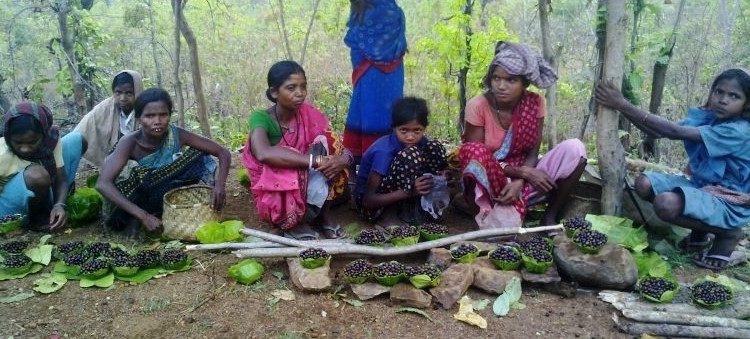Keonjhar: The forests and hills surrounding Keonjhar district are a year-round source of livelihood for the tribal communities living there.
Throughout the seasons, they collect and sell various forest produce to sustain their families.
During the summer, demand for Chironji or Almondette, which is known as Chara Koli in local parlance, has a high demand in village markets and urban centres.
Also Read: Wild kendu suffers in neglect sans promotion, marketing
Chara Koli is a tangy-sweet forest berry which is available in the district in abundance. Natural treats like Chara Koli as well as ice apple, jackfruit, and mango, are especially popular during hot weather.
While the outer layer of Chara Koli is widely enjoyed, it’s the seed of the berry that holds far more commercial value. However, due to a lack of awareness, tribal collectors often sell a bundle for just Rs20, unaware that the seed alone fetches significantly higher prices in bigger markets.
These berries are usually gathered by hand from forests and hills before being carried in baskets or bags to local roadsides and markets. Traders, recognising the demand, buy the berry cheaply and transport it both within and outside the district, making substantial profits. Though tribal sellers typically earn just Rs20 per kilogram, the processed seed is sold for three to four times more.
The seeds are washed, dried, and either hand-processed or machine-processed to extract the edible core. These are then used in sweets, laddus, porridge and snack mixes.
Their demand extends not just across India but internationally as well. At present, these seed prices rival, or even surpass, those of cashews and pistachios, fetching more than Rs1,000 per kilogram in some markets.
Educationist Ramakanta Swain noted that deforestation and climate change are major factors behind the declining presence of Chronji trees in backyards of houses and forests. Without greater awareness and protection efforts, he warned, the availability of such natural produce will continue to dwindle.
Also Read: Jackfruit cafes coming up in Keonjhar district
Retired Forest officer Alekh Chandra Patra added that given the rising demand outside the region, administrative intervention is essential. He stressed the need for awareness programs, sustainable harvesting practices, and value-added processing units to ensure both conservation and income generation.
By protecting trees like chironji, palm, and jackfruits, and creating structured processing systems, tribal communities could significantly boost their income while ensuring broader access to these forest-based products, they opined.
PNN






































